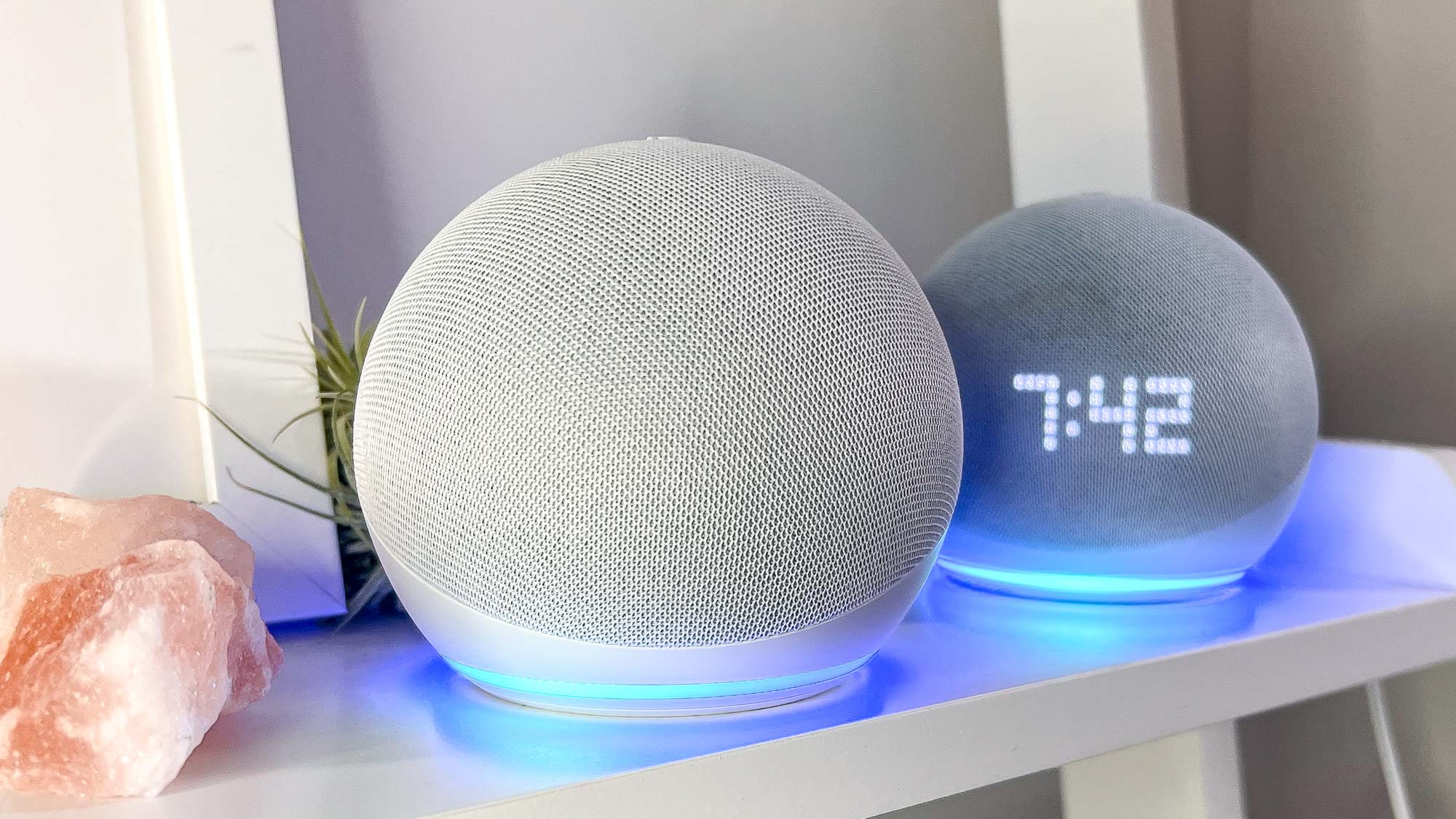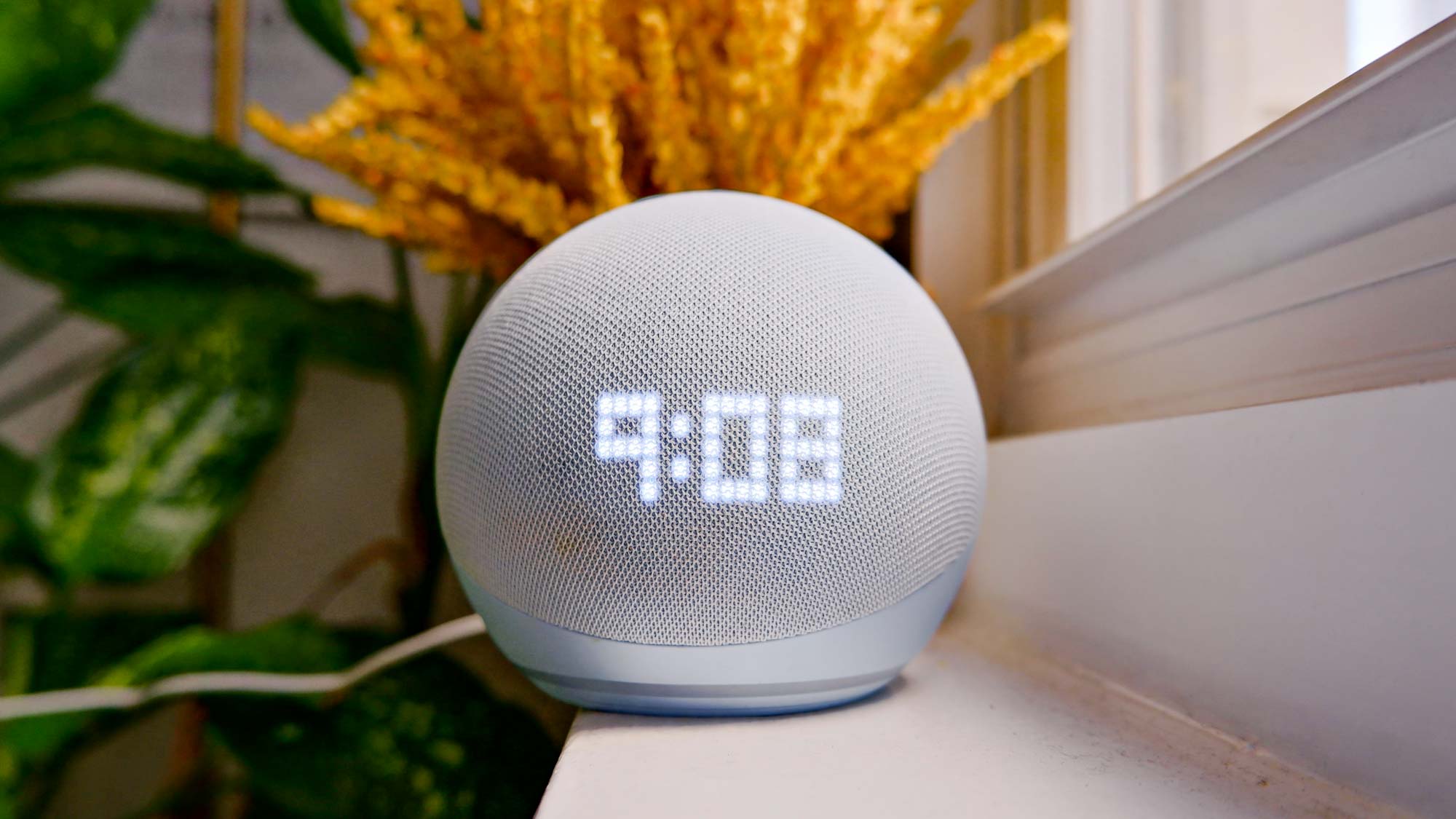
The best smart speakers add music, calling capabilities, and smart home controls to any room. They work by using built-in microphones to passively listen out for a wake word such as "Hey Google" or "Alexa" to activate. Once triggered, you have a brief time window to speak a voice command or ask a question. For example, you can tell an Amazon Echo device "Alexa, turn on my bedroom lights" to turn on a set of connected smart lights.
From serving as my everyday assistant that reminds me of events on my calendar to boasting cool features like linking music between multiple speakers, there's a lot that I like about these devices. This extensive functionality is one of the reasons I have a smart speaker in each room of my house. Still, between privacy concerns and the occasional glitch, there are some things to consider before you go gung-ho on buying one. Here are 5 things I wish I'd known before adding a smart speaker to my home.
Most have built-in smart home sensors
From Amazon's budget Echo Dot to Apple's Homepod, the latest smart speakers have different kinds of sensors weaved into their body. These can be used in automation routines to trigger actions when changes in motion, sound, or temperature are detected. I have my bedroom Echo Dot tell my smart thermostat to reduce the heat when it detects that my room is too hot (over 68 degrees). Thoroughly read what features your smart speaker comes with to maximize its value. In the case of my Echo Dot with Clock, I not only got it on sale but it eliminated the need for me to purchase a separate alarm clock or smart temperature sensor.
Privacy and data handling

You should be aware that you're adding an always-listening microphone into your space and familiarize yourself with its physical mute button if this concerns you. Smart speakers work by recording what you say after using their wake word and then sending your audio to the cloud for processing. You should look into what data your specific smart speaker collects, where it stores its audio recordings, and how the company protects your data. Keep in mind that you can manage and delete audio recordings. Here's how to clear your Alexa history and delete recordings and how to delete Siri recordings.
They double as a smart home hub
In addition to various sensors, the latest smart speakers support wireless smart home protocols to act as some of the best smart home hubs. This means you won't have to clutter your home with separate hubs to connect your Zigbee, Thread, and Bluetooth devices to your main platform. Amazon's latest Echo and Echo Dots even act as an Eero mesh router extenders to expand Wi-Fi network coverage and speeds if you're in the Eero ecosystem.
Smart speakers can activate unexpectedly
No, you don't have a ghost in your home. Sometimes either my Google Home or Echo speakers will randomly start talking in the middle of the night. It took some research to figure out but it was due to the sound of passing cars waking them up. Keep an eye out for potential unintentional triggers like how close your smart speaker is to your TV or window. Some things you just don’t have control over—my collection of Echos put in work when my cousin Alexa comes to visit.

Speak your commands slowly
If you don't want to repeat a command twice, you'll need to remember to take your time when speaking. Even the best smart speaker microphones can misinterpret a phrase. Whether it's to play a specific song or control a device, you should speak slowly and pronounce words clearly. Admittedly, even I can forget to do this while I'm multitasking. For this reason, I like to keep one of the best smart displays in loud rooms in my home like my kitchen and living room.







